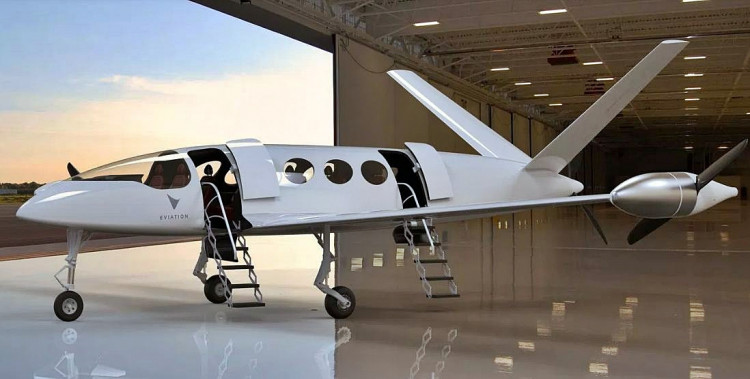In Elon Musk's long list of priorities, developing an electric-powered airplane has to take a back seat to his other, more pressing concerns such as his electric vehicles, his space exploration company, his tunneling company and his energy storage company, to name the most prominent.
But Musk and his unending infatuation with a Tesla electric plane have been making the news of late. What we do know is that Musk favors developing (if ever) an electric vertical take-off and landing (eVTOL) aircraft. But he's never laid out plans to bring a Tesla eVTOL to the drawing board although he has admitted to having a design for one such aircraft years ago.
He even talked about it at length in 2009 in an interview still on YouTube.
Over the weekend, Musk said the energy density of batteries needs to improve for him to consider moving into eVTOLs. He followed-up this surprising statement by unexpectedly updating his timeline for the energy density in batteries to improve enough to enable battery-powered airplanes.
Replying to a tweet about electric planes, Musk on June 30 said planes can indeed fly on batteries, "but still a bit too limited on the range. That will change in coming years as battery energy density improves."
Musk again said jet fuel beats batteries when it comes to energy density. Gains in efficiency, however, mean you don't need as much energetic potential.
"Jet A (kerosene) has much higher energy density than Li-ion, but electric motors weigh much less and convert stored energy to motion better than combustion engines."
Along with revealing he had a design for an eVTOL, Musk estimated Li-ion batteries will need to achieve an energy density of 400 Wh/kg so batteries can beat kerosene and make his eVTOL viable.
The good news for those looking forward to a Tesla eVTOL is that today's battery cells with high cycles can attain 300 Wh/kg of energy density. Getting to Musk's 400 Wh/kg is just around the corner.
While many hold out for a Tesla eVTOL, others believe that what Musk really wants is to develop and produce the lightweight battery packs that will power future electric planes.
They said Tesla, which makes battery packs at its Gigafactory 1 in Nevada and Gigafactory 2 in New York State, is ideally positioned to supply these aircraft electric batteries.
Tech pundits note that if battery energy density improves by more than 30 percent over the next five years, it will give birth to commercial electric planes. This huge advance will also make EVs cheaper, lighter, and longer range.





